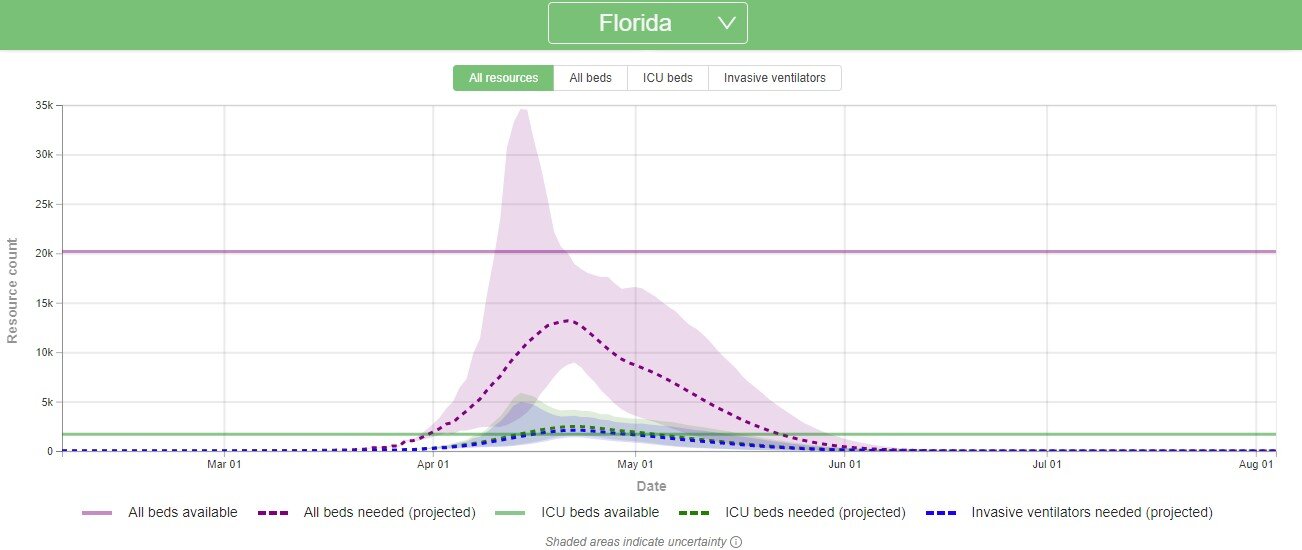A chart showing the estimated peak of the Coronavirus pandemic in Florida. (Chart: IHME)
April 6, 2020 by David Silverberg.
The Institute for Health Metrics and Evaluation (IHME), a respected independent population health research center at the University of Washington, has revised its estimate of the peak Coronavirus impact in Florida to April 21, 15 days from today.
This is 12 days earlier than a previous estimate of one week ago, which put the peak at May 3. It means Floridians can look forward to the worst days of the siege being over sooner than previously expected.
The change in estimate is chiefly due to Gov. Ron DeSantis’ issuance of a stay-at-home order on April 3 and government-ordered social distancing measures. However, DeSantis has not closed essential services or severely restricted travel, which are measures taken into account by the IHME estimate. Those measures would further flatten the curve of infections.
The IHME estimate also lowers the estimated shortage of intensive care unit (ICU) beds in Florida from 843 to 769 beds. It estimates that 2,095 ventilators will be needed by the state.
Flattening the curve only slightly alters the expected number of deaths to 6,770, down just six from last week’s estimate of 6,776. However, the estimated number of COVID-19 deaths per day go up from 174 to 242 at the peak, the point when the numbers of infections are worst.
Nationally, IHME is estimating infections to reach their peak on April 15, nine days from today. It’s anticipating a shortage of 36,654 hospital beds and 16,323 ICU beds. It projects a need for 24,828 ventilators. At its peak, IHME expects 3,130 deaths nationwide on April 16 and total deaths at 81,766—375 fewer than projected a week ago.
Yesterday, April 5, Vice Adm. Dr. Jerome Adams, the US surgeon general warned on Fox News Sunday that the next two weeks were going to be the worst nationally.
“Well, it's tragically fitting that we're talking at the beginning of Holy Week because this is going to be the hardest and the saddest week of most Americans' lives, quite frankly,” he told host Chris Wallace. “This is going to be our Pearl Harbor moment, our 9/11 moment, only it's not going to be localized. It's going to be happening all over the country. And I want America to understand that. But I also want them to understand that the public, along with the state and the federal government, have a power to change the trajectory of this epidemic.”
He continued: “I want Americans to understand that, as hard as this week is going to be, there is a light at the end of the tunnel if everyone does their part for the next 30 days.”
